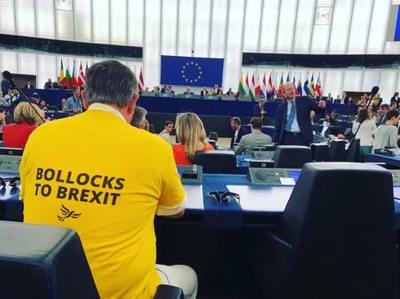Brexit - a summary of key impacts on environmental law


https://www.facebook.com/greenlibdems/posts/3914107951940399 It is still uncertain what kind of Brexit we will have. Specific areas of UK environmental law will be affected differently depending on the nature of the UK's exit and a complex range of factors (such as the history and origin of the law, how it has been implemented into domestic law, whether it is an area that is directly relevant to access to the single market, wider policy objectives and whether the UK has a history of non-compliance).
Despite current uncertainties, key points are:
• Maintenance of environmental protections._There are significant concerns that Brexit will result in a weakening of environmental standards in the UK. The government has committed to maintaining environmental protections after Brexit. To help achieve this, it has published draft clauses on environmental principles and governance, including setting up a new independent environmental watchdog to take over the supervisory role of the European Commission.
• Transition from EU-managed environmental regimes._Environmental regimes that are closely managed at an EU level (such as the EU REACH chemicals regime) will be heavily impacted by Brexit, particularly in a no-deal scenario. There is the potential for duplication of registration requirements and a loss of access to information about chemicals. For example, existing registrations under REACH by UK-based and EU-based companies would not be recognised by the EU and the UK (respectively) in a no-deal scenario, unless additional measures are taken.
• EU Emissions Trading System (EU ETS)._The government has indicated that it intends the UK to stay in the EU ETS at least until the end of Phase III in 2020 (if this is agreed). However, in a no-deal Brexit, UK operators will no longer have obligations under the EU ETS, which is likely to impact on the carbon price. In anticipation of Brexit, the UK currently does not have access to the Consolidated System of European Registries, which includes the EU ETS Union Registry. The UK is proposing to introduce a new carbon emissions tax if there is no deal and is exploring other options for carbon pricing after Brexit, including its preferred option of a UK ETS that is linked to the EU ETS.
• Obligations under international agreements._Much EU law is derived from international agreements. The UK is legally bound after Brexit to continue to honour its commitments under international agreements to which it is a signatory. This includes:
◦ the Aarhus Convention on public participation in decision-making and access to justice and information (United Nations Economic Commission for Europe (UNECE) Convention on Access to Information, Public Participation in Decision-making and Access to Justice in Environmental Matters)
◦ the Basel Convention on transboundary movements of hazardous wastes and their disposal); and
◦ the Montreal Protocol on substances that deplete the ozone layer, with its Kigali Amendment
◦
• Meeting EU product standards in exports._UK companies seeking to export their products to the EU will still be obliged to conform to EU product standards and other EU environmental and health and safety requirements relating to products, including regimes for chemicals, ecodesign, product energy efficiency, labelling and producer responsibility. This is likely to be the case in any Brexit scenario.
Graeme Wood

Please join our Facebook Discussion of this article
From GLD Challenge Magazine 2019-20
